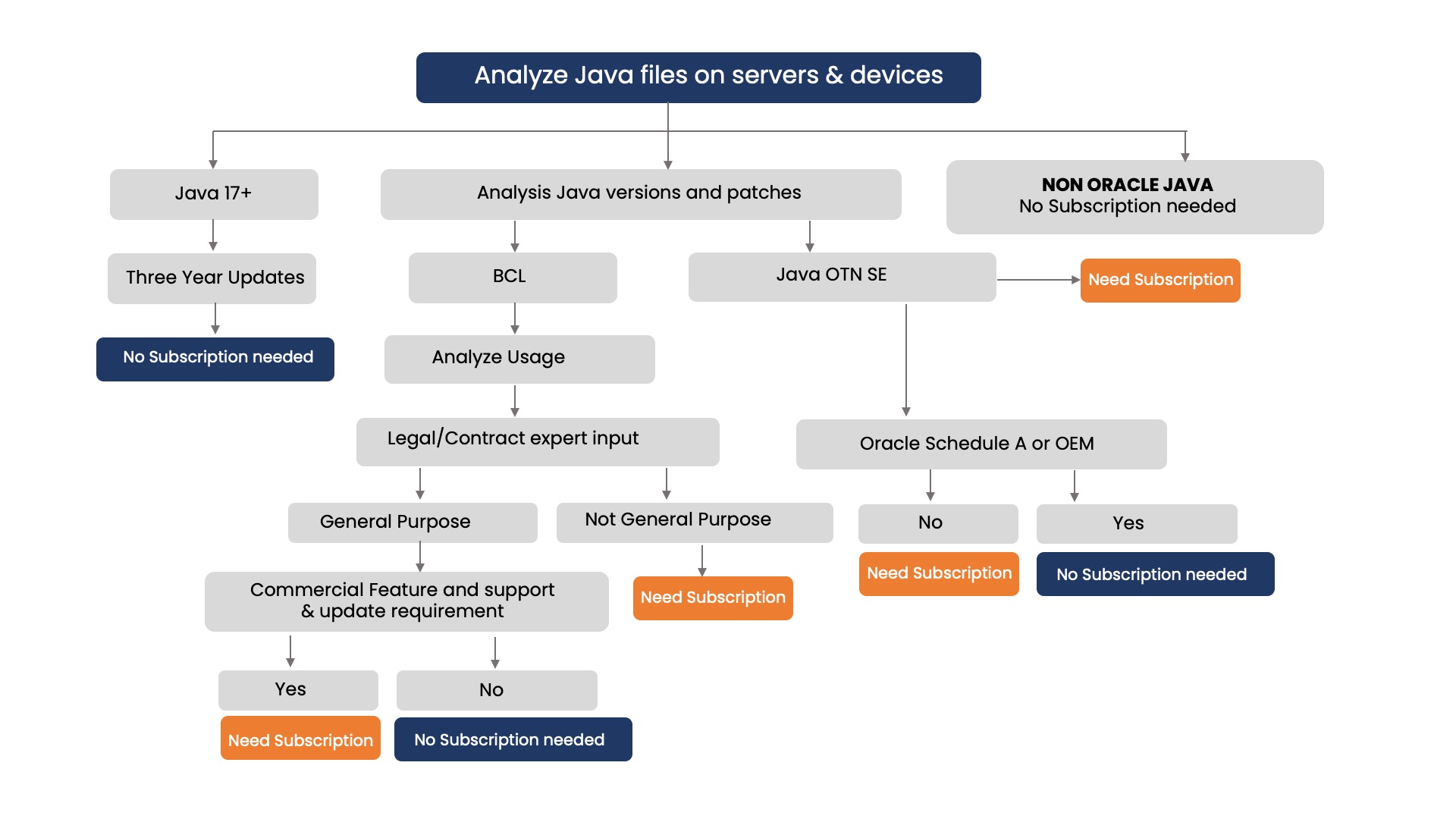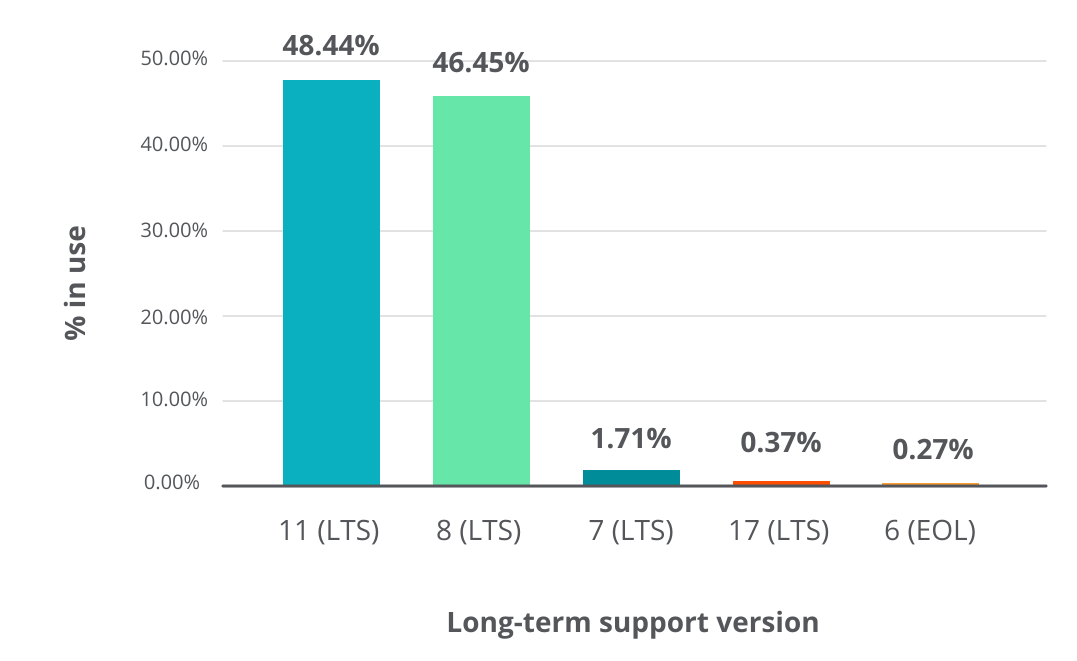Introduction
Authors: Purushottam Thakur, Innova Solutions
What is the Oracle No-Fee Terms and Conditions (NFTC) license?
Oracle released Java 6 with a focus on open-source development, and currently, both the Java Development Kit (JDK) and OpenJDK versions are available. In the past, Oracle JDK was free for development use but required a license for production use until Java 8. The Oracle JDK licensing terms have changed as of 2019, and now a paid license is required for both development and production use, which has caused controversy within the Java community.
Oracle recently introduced the No-Fee Terms and Conditions (NFTC) license in September 2021, which allows users, including those in commercial and production fields, to use Oracle JDK free of charge. This applies to all scenarios, including production, due to the redistribution without a fee as of Java 17. In 2019, with the release of the Java 8_211 patch, the NFTC license changed the terms of most Oracle Technology Network (OTN) licenses, which could significantly impact the Java community. Furthermore, we will explore how Oracle’s release cycle modification, beginning with Java 10, may also affect users.
Licensing Details
In 2023, the Java license will be modified with more general terms, which may increase business costs; however, the NFTC license has been well-received within the Java community. Below is the latest license information for every Java version released to date.
The Oracle Java JDK Versions 1-8
It is important to note that Oracle Java JDK versions 1-8 have security updates up to version 211. Reviewing the general-purpose definition in the Oracle Binary Code License Agreement (BCLA) is crucial if you use Java. It is necessary to have a Java Platform Standard Edition (Java SE) license, which should have been obtained previously if you have used Java for business purposes. Commercial features are typically licensed separately from Java BCLA, so if you want to use them, you will need an additional license from Oracle. Here is a list of the commercial features that Oracle has:
- Java Enterprise (MSI) Installer
- Java Flight Recorder
- Java Mission Control
- JRE Usage Tracking
- Java Advanced Management Console
- JRockit Mission Control, Flight Recorder, or Real-time Deterministic GC
To ensure maximum security, it is highly recommended to patch Java JDK versions 1-8 with security patch 211 or a newer version. Once installed, obtaining a Java license is mandatory unless you use Java for products mentioned in Schedule B. It is prohibited to use Oracle Java JDK versions 11-16 on clients and servers without a license; however, Oracle Java JDK 17 and beyond do not require one.
Release Cycle
Java releases were previously only available every three years—which is too long in today’s fast-paced market for any programming language—and each release included numerous new features and changes. Consequently, companies and developers took longer to adopt new features and versions since the release cycle was longer.
Issues with Release Cycles and Adoption
Due to lengthy release cycles, many Java developers have slowly upgraded to newer versions, resulting in a significant amount of production code still running on Java 8. Nevertheless, the release of Java 20 in March 2023 presents an opportunity for the NFTC to promote faster upgrades and help the Java community avoid licensing charges.
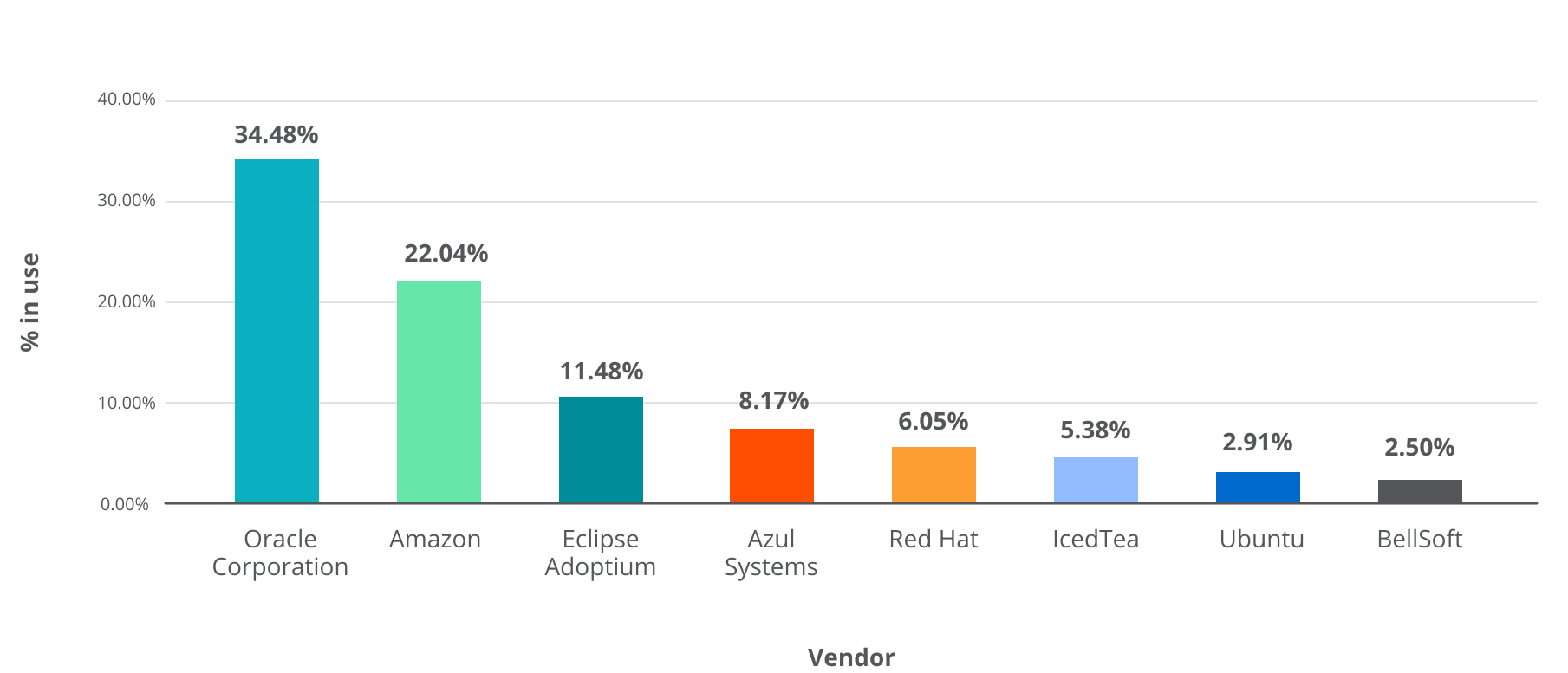
Source: https://newrelic.com/sites/default/files/2022-05/reports_stateofjava_3.svg
The Pricing Model
2021 Pricing Model
According to the NFTC License, using Java for commercial purposes is permissible within one year from the next release. Here is the pricing model after the free period:
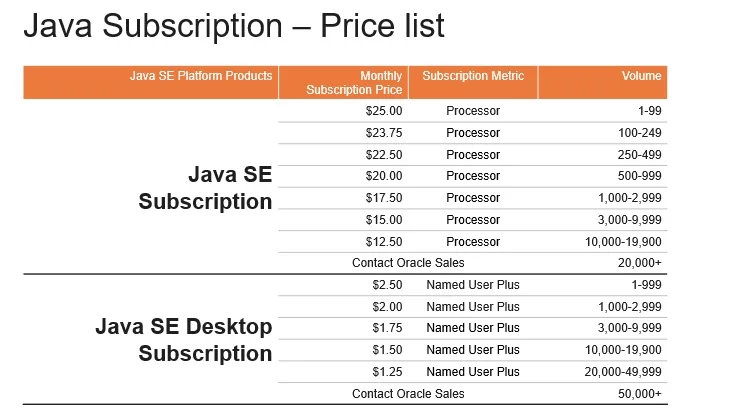
Source: Oracle Java Licensing Changes 2023 – Do you need to pay? (redresscompliance.com)
There was difficulty distinguishing legitimate users within an organization because Java SE subscriptions are based on processors, while the Java SE Desktop subscriptions are based on users.
2023 Pricing Model
To avoid confusion with processors and Java users, Oracle updated its terms and conditions and simplified its licensing terms in January 2023, which is now referred to as Java SE Universal.
The Java Universal Subscription no longer includes the terms “user” and “processor” and is instead based on the number of employees within an organization.
The Impact
The NFTC and changes in the release cycle can accelerate the Java community’s upgrading process by addressing three significant concerns with the current system. In the past, longer release cycles resulted in complex upgrades that required the market to comprehend and embrace fully. Since Java has always been free and backward-compatible, companies have not been swift to upgrade to the latest release. However, in 2019, many Java users were concerned about new licensing terms that demanded payment for commercial and production use of all versions from Java 8_211 and beyond.
Results:
To avoid paying for an Oracle license for commercial or production use, companies need to upgrade to the latest Long-Term Support (LTS) version within a year. Companies should be proactive in upgrading to save on licensing costs, which allows them to take advantage of up to three years of free production usage under NFTC.
Conclusion
NFTC and release cycle changes can accelerate Java upgrades, and Java 17’s popularity has led users and businesses to adopt it more rapidly than ever before. Many companies are switching to OpenJDK to avoid excessive NFTC fees, and JDK vendors such as Red Hat and Amazon Web Services (AWS) are gaining market share. Java can evolve quickly, regain any market share lost to newer technologies, and remain competitive with faster releases.
Enterprise plans for upgrade to Java 17
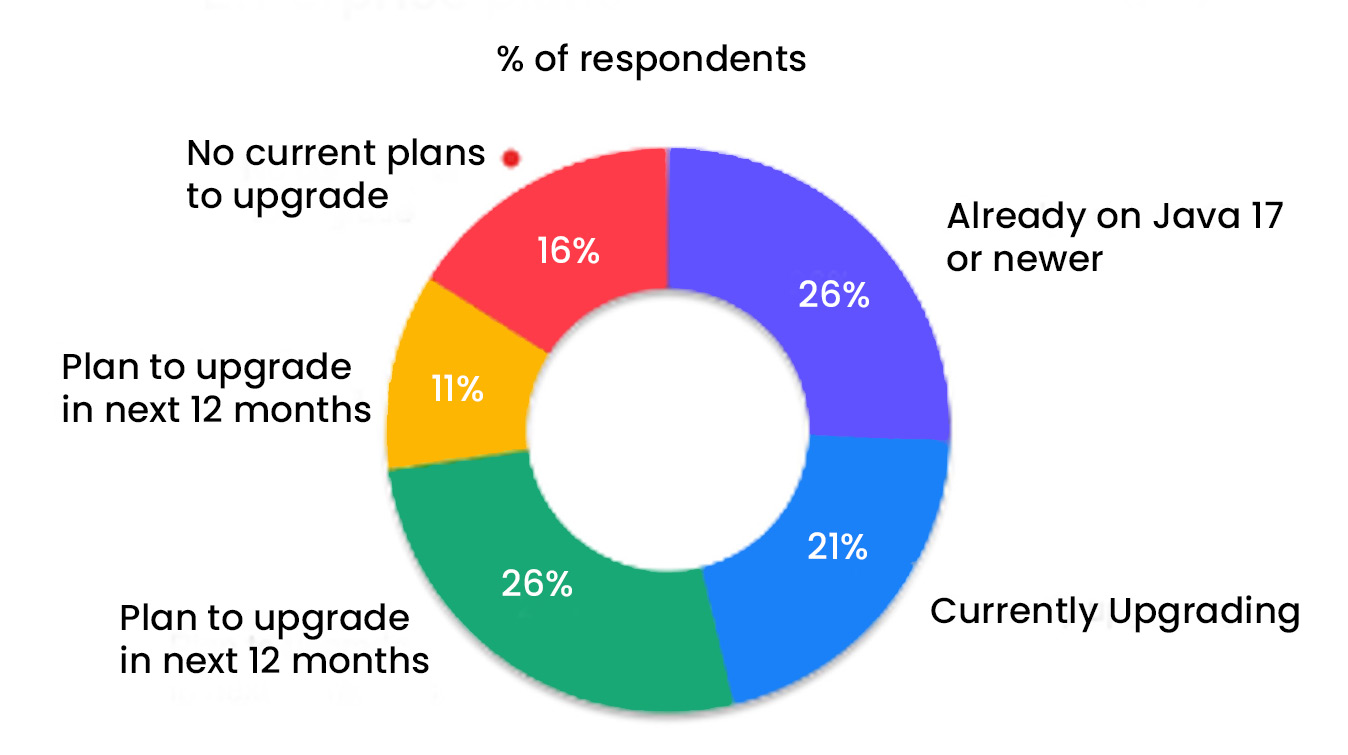
Bibliography
Licenses. Oracle No-Fee Terms and Conditions (NFTC) License Agreement. (n.d.-a). https://www.oracle.com/downloads/licenses/no-fee-license.html
Oracle Java Licensing changes Jan 2023. Palisade Compliance. (2023, February 5). https://palisadecompliance.com/resource/java-licensing-change-january-2023/
Admin. (2023, February 1). Oracle insight: What do Oracle’s 2021 changes to java licensing mean for you? IT Asset Alliance. https://itassetalliance.com/blog-posts/what-do-oracles-2021-changes-to-java-licensing-mean-for-you/
Oracle Blogs. (n.d.). https://blogs.oracle.com/cloud-infrastructure/post/introducing-free-java-license
Omgzui. (2023a, April 10). Enterprises are migrating to Java 17. Medium. https://medium.com/javarevisited/enterprises-are-migrating-to-java-17-13643cf623ea
2022 state of the Java ecosystem. New Relic. (n.d.-a). https://newrelic.com/resources/report/2022-state-of-java-ecosystem
Java programming – the state of developer ecosystem in 2022 infographic. JetBrains. (n.d.). https://www.jetbrains.com/lp/devecosystem-2022/java/
Redlich, M., Evans, B., Janssen, J., Sheasha, D. A., Korando, B., & Santana, O. (2022, December 16). Java InfoQ Trends Report – December 2022. InfoQ. https://www.infoq.com/articles/java-jvm-trends-2022/
Oracle Blogs. (n.d.). https://blogs.oracle.com/java/post/free-java-license


